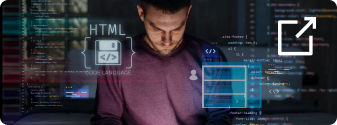- Services
Software Development as a service (SDAAS)
Accelerate your time-to-market with unmatched quality through our subscription-based development services
Software Development as a service (SDAAS)
Accelerate your time-to-market with unmatched quality through our subscription-based development services
SDaaS
Software Development as a Subscription
SecaaS
Security as a Service
MVP Development
Launch Your MVP in 90 Days
Blockchain Development
Building secure decentralized solutions
Legacy System Modernization
Modernize Your Software with AI
AI Development
Developing smarter software systems
- Staff Augmentation
- Industries
- Portfolio
- Insights
- Contact us
- Services
Software Development as a service (SDAAS)
Accelerate your time-to-market with unmatched quality through our subscription-based development services
Software Development as a service (SDAAS)
Accelerate your time-to-market with unmatched quality through our subscription-based development services
SDaaS
Software Development as a Subscription
SecaaS
Security as a Service
MVP Development
Launch Your MVP in 90 Days
Blockchain Development
Building secure decentralized solutions
Legacy System Modernization
Modernize Your Software with AI
AI Development
Developing smarter software systems
- Staff Augmentation
- Industries
- Portfolio
- Insights
- Contact us
- Services
Software Development as a service (SDAAS)
Accelerate your time-to-market with unmatched quality through our subscription-based development services
Software Development as a service (SDAAS)
Accelerate your time-to-market with unmatched quality through our subscription-based development services
SDaaS
Software Development as a Subscription
SecaaS
Security as a Service
MVP Development
Launch Your MVP in 90 Days
Blockchain Development
Building secure decentralized solutions
Legacy System Modernization
Modernize Your Software with AI
AI Development
Developing smarter software systems
- Staff Augmentation
- Industries
- Portfolio
- Insights
- Contact us
- Services
Software Development as a service (SDAAS)
Accelerate your time-to-market with unmatched quality through our subscription-based development services
Software Development as a service (SDAAS)
Accelerate your time-to-market with unmatched quality through our subscription-based development services
SDaaS
Software Development as a Subscription
SecaaS
Security as a Service
MVP Development
Launch Your MVP in 90 Days
Blockchain Development
Building secure decentralized solutions
Legacy System Modernization
Modernize Your Software with AI
AI Development
Developing smarter software systems
- Staff Augmentation
- Industries
- Portfolio
- Insights
- Contact us
- Services
Software Development as a service (SDAAS)
Accelerate your time-to-market with unmatched quality through our subscription-based development services
Software Development as a service (SDAAS)
Accelerate your time-to-market with unmatched quality through our subscription-based development services
SDaaS
Software Development as a Subscription
SecaaS
Security as a Service
MVP Development
Launch Your MVP in 90 Days
Blockchain Development
Building secure decentralized solutions
Legacy System Modernization
Modernize Your Software with AI
AI Development
Developing smarter software systems
- Staff Augmentation
- Industries
- Portfolio
- Insights
- Contact us










